I would like to point out this tweet by NASA about the ocean temperatures.
Welcome to Tesla Motors Club
Discuss Tesla's Model S, Model 3, Model X, Model Y, Cybertruck, Roadster and More.
Register
Install the app
How to install the app on iOS
You can install our site as a web app on your iOS device by utilizing the Add to Home Screen feature in Safari. Please see this thread for more details on this.
Note: This feature may not be available in some browsers.
-
Want to remove ads? Register an account and login to see fewer ads, and become a Supporting Member to remove almost all ads.
You are using an out of date browser. It may not display this or other websites correctly.
You should upgrade or use an alternative browser.
You should upgrade or use an alternative browser.
Climate Change / Global Warming Discussion
- Thread starter Raffy.Roma
- Start date
-
- Tags
- Energy Environment Policy
mspohr
Well-Known Member

How 19th-century pineapple plantations turned Maui into a tinderbox
Land privatization and water depletion set the stage for the Lahaina fire 150 years ago. Now, land companies may benefit even more
In the late 18th century, when the Hawaiian Kingdom became a sovereign state, Lahaina carried such an abundance of water that early explorers reportedly anointed it “Venice of the Pacific”. A glut of natural wetlands nourished breadfruit trees, extensive taro terraces and fishponds that sustained wildlife and generations of Native Hawaiian families. But more than a century and a half of plantation agriculture, driven by American and European colonists, have depleted Lahaina’s streams and turned biodiverse food forests into tinderboxes. Today, Hawaii spends $3bn a year importing up to 90% of its food. This altered ecology, experts say, gave rise to the 8 August blaze that decimated the historic west Maui town and killed more than 111 people.
The rise of plantation capital spawned the drying of the west side of Maui,” said Kamana Beamer, a historian and a former member of the Hawaii commission on water resource management, which is charged with protecting and regulating water resources. “You can see the link between extractive, unfettered capitalism at the expense of our natural resources and the ecosystem.”
mspohr
Well-Known Member

Pope Francis to lay bare ‘terrible world war’ on nature in papal letter
Follow-up to 2015 encyclical on climate crisis urges people to take side of ‘victims of environmental injustice’
Pope Francis has said he will issue a follow-up document on the protection of nature because a “terrible world war” against the environment was taking place. The pontiff said the papal statement – a follow-up to his 2015 encyclical on the climate crisis – would be issued on 4 October, the feast day of Francis of Assisi, the patron saint of the environment. Describing nature as a “sacred gift from the creator”, Francis urged people to take the side of the “victims of environmental and climatic injustice” and called for an end to “the senseless war on our common home, it is a terrible world war”.

Pope Francis to lay bare ‘terrible world war’ on nature in papal letter
Follow-up to 2015 encyclical on climate crisis urges people to take side of ‘victims of environmental injustice’www.theguardian.com
Pope Francis has said he will issue a follow-up document on the protection of nature because a “terrible world war” against the environment was taking place. The pontiff said the papal statement – a follow-up to his 2015 encyclical on the climate crisis – would be issued on 4 October, the feast day of Francis of Assisi, the patron saint of the environment. Describing nature as a “sacred gift from the creator”, Francis urged people to take the side of the “victims of environmental and climatic injustice” and called for an end to “the senseless war on our common home, it is a terrible world war”.
It is quite strange that Christians would support fossil fuel and "anti-woke" against Bible teachings. Almost as if they're being led by a false prophet.
mspohr
Well-Known Member
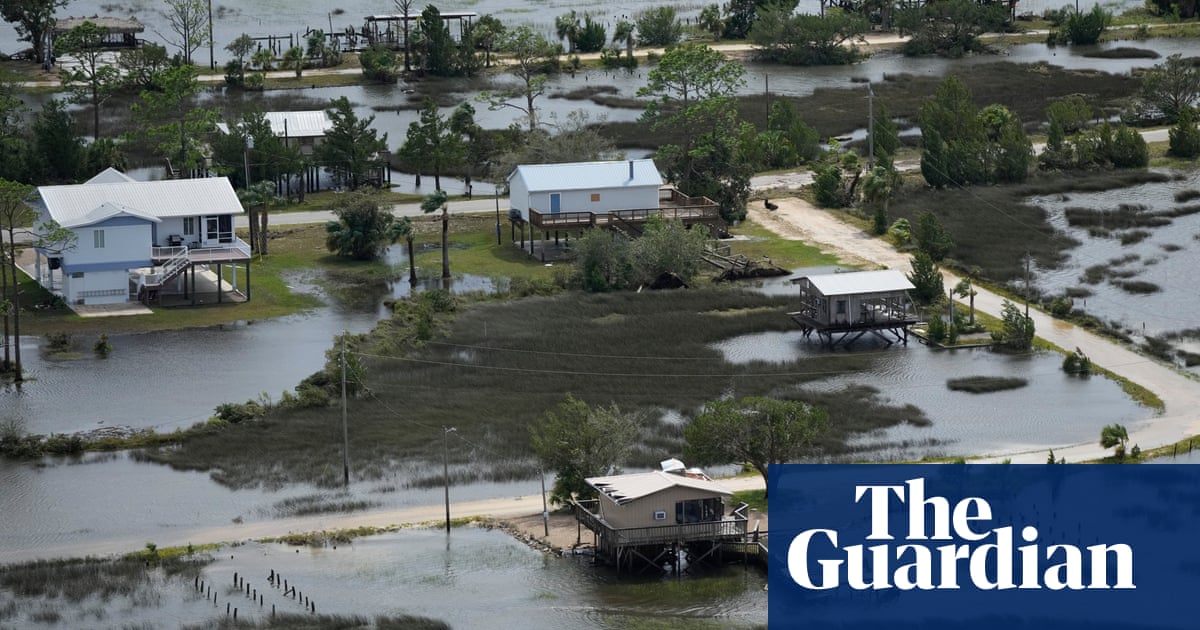
Hurricane Idalia could become 2023’s costliest climate disaster for the US
Analysts estimate the category 3 storm has already racked up a preliminary cost of $9.36bn, straining the insurance industry
Hurricane Idalia could become the costliest climate disaster to hit the US this year, analysts say, with massive implications for insurance and risk management industries. The category 3 storm that barreled into Florida’s west coast from the Gulf of Mexico on Wednesday, then carved a path of destruction and flooding through Georgia and the Carolinas, has a preliminary price tag of $9.36bn, based on early estimates, according to risk analysts at UBS. What are storm surges and what is the threat from Hurricane Idalia? It follows 15 previous “individual weather and climate disasters” recorded in the US already this year by the National Oceanic and Atmospheric Administration (Noaa) as unprecedented heat, wildfires, storms and floods escalate. Cumulatively, Noaa said that by the end of July, which Nasa said was Earth’s hottest month on record, the total estimated cost of the damage caused by the disasters was $39.7bn. That figure does not include the estimated $5.5bn cost to rebuild the town of Lahaina following devastating wildfires that razed the Hawaii island of Maui this month.
Evidence shows that climate change is impacting hurricane activity in the north Atlantic with a higher proportion of stronger, wetter hurricanes that have the potential to travel further inland before dissipating,” CoreLogic’s hurricane risk report says.

Hurricane Idalia could become 2023’s costliest climate disaster for the US
Analysts estimate the category 3 storm has already racked up a preliminary cost of $9.36bn, straining the insurance industrywww.theguardian.com
Hurricane Idalia could become the costliest climate disaster to hit the US this year, analysts say, with massive implications for insurance and risk management industries. The category 3 storm that barreled into Florida’s west coast from the Gulf of Mexico on Wednesday, then carved a path of destruction and flooding through Georgia and the Carolinas, has a preliminary price tag of $9.36bn, based on early estimates, according to risk analysts at UBS. What are storm surges and what is the threat from Hurricane Idalia? It follows 15 previous “individual weather and climate disasters” recorded in the US already this year by the National Oceanic and Atmospheric Administration (Noaa) as unprecedented heat, wildfires, storms and floods escalate. Cumulatively, Noaa said that by the end of July, which Nasa said was Earth’s hottest month on record, the total estimated cost of the damage caused by the disasters was $39.7bn. That figure does not include the estimated $5.5bn cost to rebuild the town of Lahaina following devastating wildfires that razed the Hawaii island of Maui this month.
Evidence shows that climate change is impacting hurricane activity in the north Atlantic with a higher proportion of stronger, wetter hurricanes that have the potential to travel further inland before dissipating,” CoreLogic’s hurricane risk report says.
Free FEMA funds, good for local GDP and jobs creation.
CyberGus
Not Just a Member
Old Testament: The Original Job CreatorFree FEMA funds, good for local GDP and jobs creation.
mspohr
Well-Known Member
Insurers are getting cold feet.Free FEMA funds, good for local GDP and jobs creation.
High insurance rates if it's even available.
Might be better to switch to disaster funding instead of insurance.
California fire insurance unavailable or unaffordable. I have two properties that have never come close to burning in 50 or 60 years.
Should I buy expensive insurance?
Cost of insurance on one property would pay replacement cost in 20 years.
@eevee-fanFree FEMA funds, good for local GDP and jobs creation.
dude,
my Insurer UPC, sent me a letter =>5 weeks after they left Floriduh.
"we are outa here 2/1/2023" on 3/7/2023, btw we are bankrupt so "fuhgedaboudit" if filing claims
even the manatees are fleeing Florida for Chesapeake bay about 500+ miles further north
:format(url)/cloudfront-us-east-1.images.arcpublishing.com/baltimorebanner/2HUBKLVGZFDXJCPY72D5MCFTS4.jpg)
A rare manatee sighting in Chesapeake Bay waters
Manatees are typically found in waterways around Florida, but have been known to wander into the Chesapeake Bay over the years. Could climate change bring more?
www.thebaltimorebanner.com
CyberGus
Not Just a Member
Insurers are getting cold feet.
High insurance rates if it's even available.
Might be better to switch to disaster funding instead of insurance.
California fire insurance unavailable or unaffordable. I have two properties that have never come close to burning in 50 or 60 years.
Should I buy expensive insurance?
Cost of insurance on one property would pay replacement cost in 20 years.
Disasters have a way of helping people reconsider what "socialism" means
Disasters have a way of helping people reconsider what "socialism" means
I don't think there was any question. Socialism is when someone else gets benefits (or more benefits). Law and Order applies only on other people (Good ol' Boys Club). LOL
mspohr
Well-Known Member
I love socialism!Disasters have a way of helping people reconsider what "socialism" means
(Socialism for the poor, not the rich)
mspohr
Well-Known Member
Socialism is when everyone gets benefits.I don't think there was any question. Socialism is when someone else gets benefits (or more benefits). Law and Order applies only on other people (Good ol' Boys Club). LOL
In the US now, it seems to be socialism for the rich only. (They benefit from private profits and socialized losses)
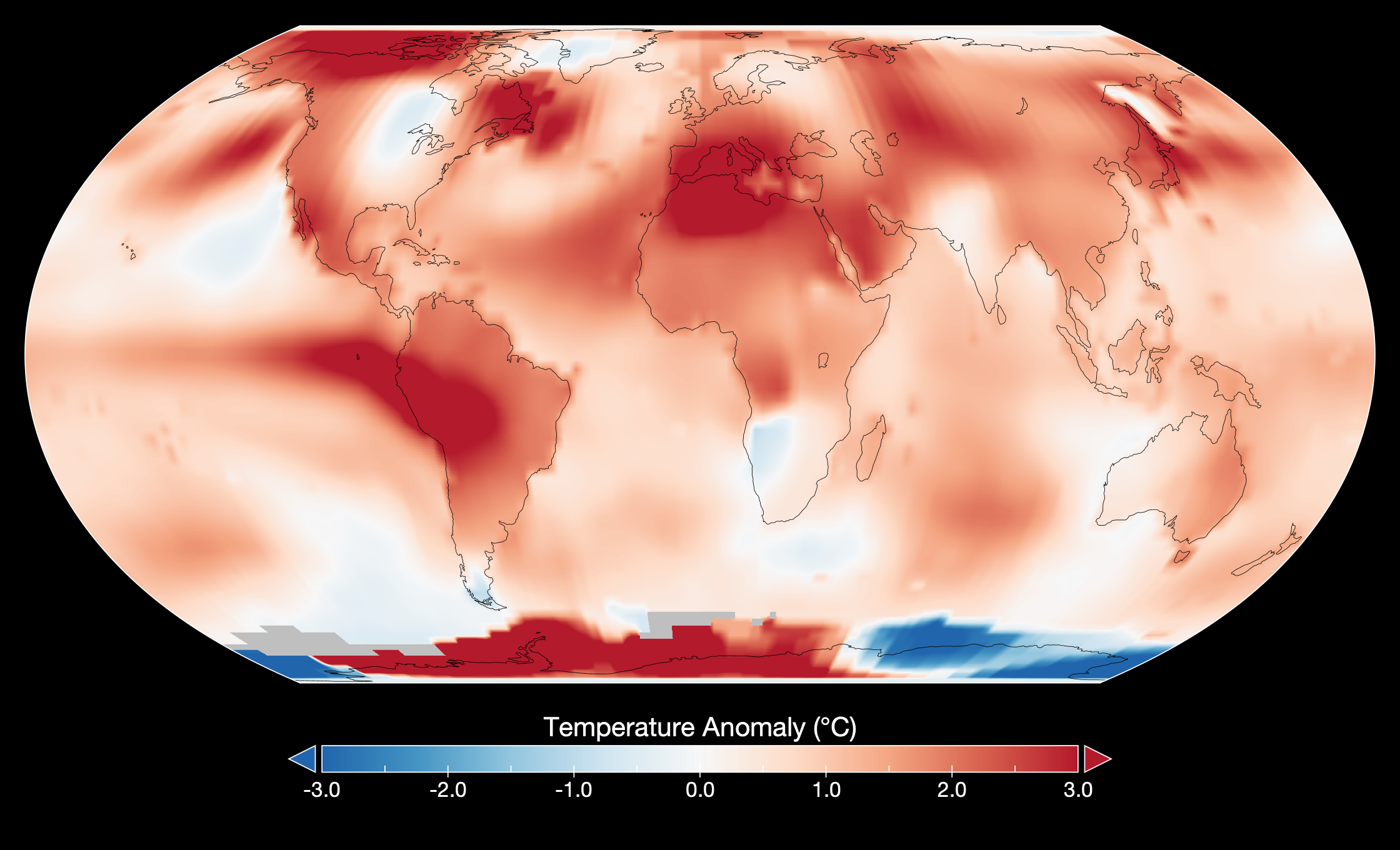
NASA Clocks July 2023 as Hottest Month on Record Ever Since 1880 – Climate Change: Vital Signs of the Planet
According to scientists at NASA’s Goddard Institute for Space Studies (GISS) in New York, July 2023 was hotter than any other month in the global temperature record.
NASA clocks July 2023 as hottest month on record ever since 1880!
B
betstarship
Guest
I've never been, but there's a lot of tech/venture-capital people that go to this annually. It sounds like a climate change fueled disaster...
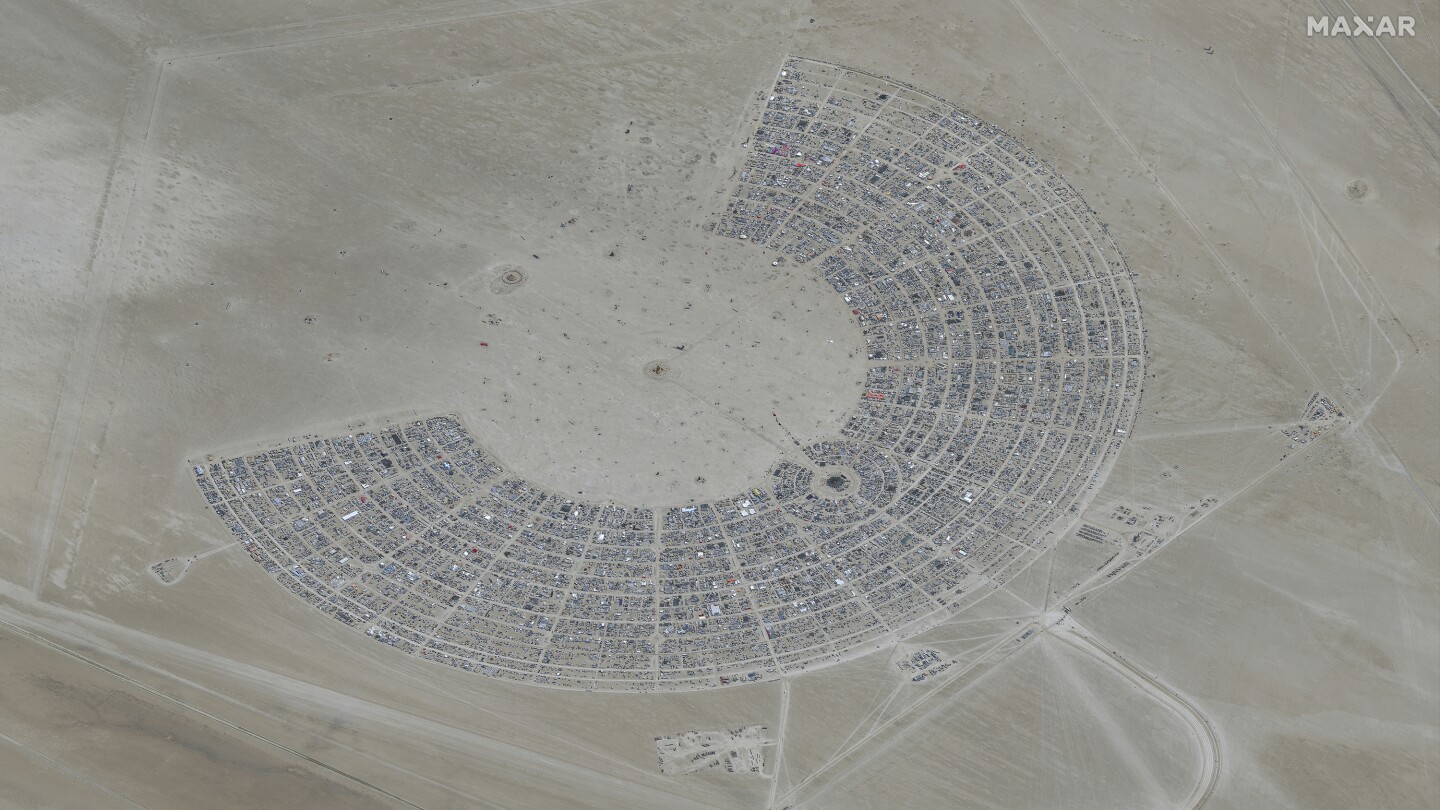
 apnews.com
apnews.com
Burning Man flooding strands tens of thousands at Nevada site; authorities are investigating 1 death
An unusual late-summer storm turned a week-long counterculture fest into a sloppy mess, with tens of thousands of partygoers stuck in foot-deep mud and with no working toilets in the northern Nevada desert.
I've never been, but there's a lot of tech/venture-capital people that go to this annually. It sounds like a climate change fueled disaster...

Burning Man flooding strands tens of thousands at Nevada site; authorities are investigating 1 death
An unusual late-summer storm turned a week-long counterculture fest into a sloppy mess, with tens of thousands of partygoers stuck in foot-deep mud and with no working toilets in the northern Nevada desert.apnews.com
Amazon should work with the Air Force base to air drop supplies. There's a warehouse on the NE side of Las Vegas, pretty sure lots of almost expired stuff on the shelves.
mspohr
Well-Known Member
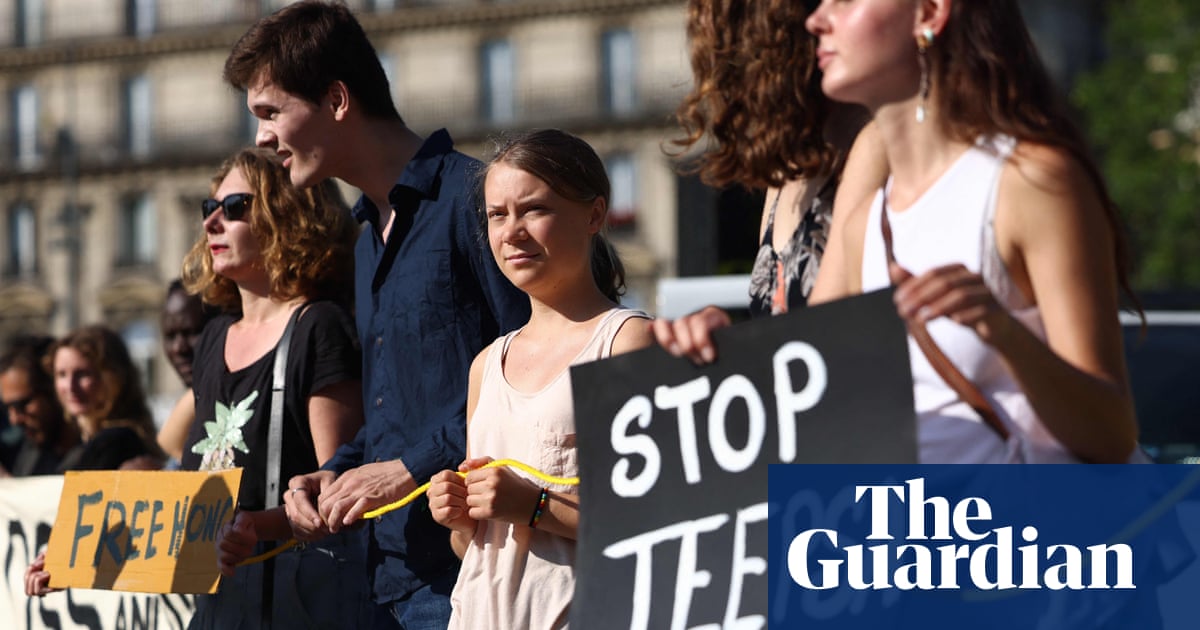
Banks pouring trillions to fossil fuel expansion in global south, report finds
Since the 2015 Paris Climate Agreement, banks have provided some $3.2tn to the fossil fuel industry to expand operations
Banks are pouring trillions of dollars into the expansion of the world’s most emitting industries in the global south, according to a new report. Developing countries are often on the frontlines of the climate crisis yet lack the resources to enact climate action plans. As such, they require trillions of dollars in aid to decarbonize their economies and adapt to a warming world. But financial firms are helping to push such countries in the opposite direction, the Monday analysis from international non-governmental organization ActionAid argues.
In that same time span, the analysis says, major international banks have also loaned and underwritten at least $370bn for the expansion of global south-based industrial agriculture. Europe’s HSBC and the United States’ Bank of America, JP Morgan Chase and Citigroup lead the pack, offering billions of dollars to big agricultural giants like Bayer (which acquired Monsanto in 2016), ADM, Cargill and ChemChina. Industrial agriculture is the second-most planet-heating industry globally, due to pollution from the production and use of chemical fertilizers, methane emissions from livestock, and the widespread practice of clearing carbon-sequestering greenery to make space for farms, the report explains.
mspohr
Well-Known Member
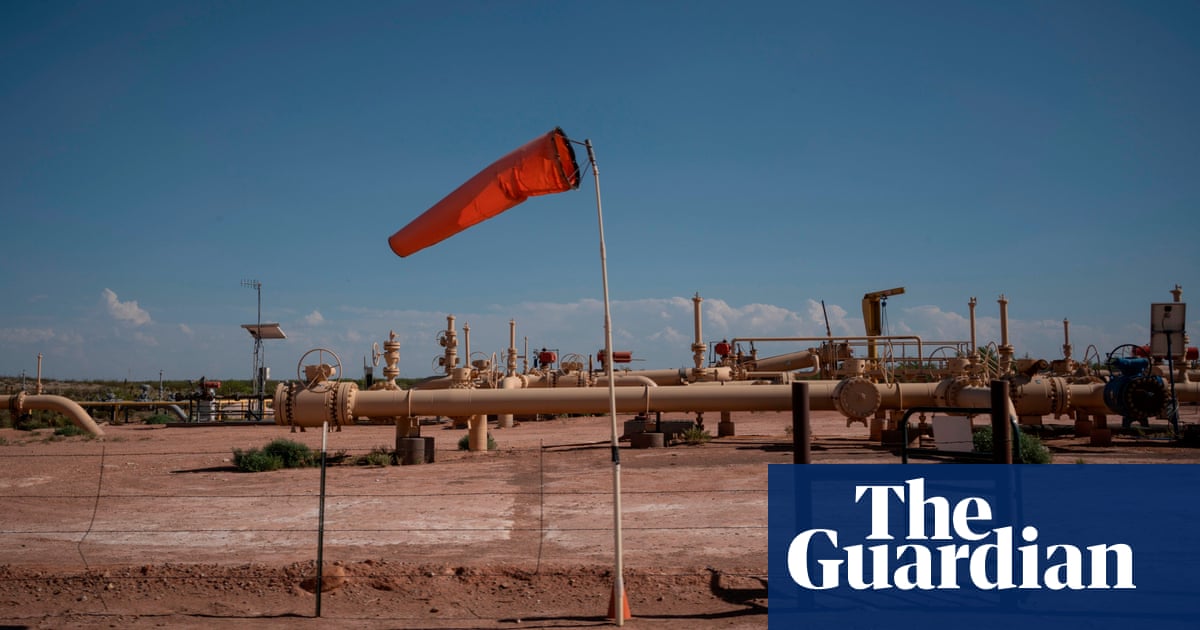
Texas fracking billionaire brothers fuel rightwing media with millions of dollars
Farris and Dan Wilks’ deep pockets fund climate denialism education, conservative politicians and pro-fossil fuel projects
Two billionaire Texas brothers whose fortunes derive from oil and gas fracking have pumped millions of dollars into rightwing media outfits that have promoted climate-crisis denialism and sent more big checks to back an array of evangelical projects and conservative Texas politicians.
The Wilks brothers, for instance, have poured millions of dollars into PragerU and the Daily Wire, two rightwing media outlets that have promoted wide-ranging conservative agendas, including climate crisis denialism to school-age kids and adults via short videos, articles and other materials.
The Wilks brothers aren’t the only ones with oil and gas ties to question climate change science from a position of self-interest; with so much invested in hydrocarbon society, their pro-fossil fuel, anti-climate-crisis science position only makes sense. Where the Wilks take things further, however, is their articulation of climate change denialism in theological terms, as if we are all destined by God for a future of environmental ruin we have no responsibility for and can’t control. The force of their advocacy, informing PragerU, the Daily Wire and other conservative media outlets, is what makes their influence so penetrating and paralyzing, and insidious.”

Texas fracking billionaire brothers fuel rightwing media with millions of dollars
Farris and Dan Wilks’ deep pockets fund climate denialism education, conservative politicians and pro-fossil fuel projectswww.theguardian.com
Two billionaire Texas brothers whose fortunes derive from oil and gas fracking have pumped millions of dollars into rightwing media outfits that have promoted climate-crisis denialism and sent more big checks to back an array of evangelical projects and conservative Texas politicians.
The Wilks brothers, for instance, have poured millions of dollars into PragerU and the Daily Wire, two rightwing media outlets that have promoted wide-ranging conservative agendas, including climate crisis denialism to school-age kids and adults via short videos, articles and other materials.
The Wilks brothers aren’t the only ones with oil and gas ties to question climate change science from a position of self-interest; with so much invested in hydrocarbon society, their pro-fossil fuel, anti-climate-crisis science position only makes sense. Where the Wilks take things further, however, is their articulation of climate change denialism in theological terms, as if we are all destined by God for a future of environmental ruin we have no responsibility for and can’t control. The force of their advocacy, informing PragerU, the Daily Wire and other conservative media outlets, is what makes their influence so penetrating and paralyzing, and insidious.”
Evangelical, so those people think when God created the Garden, there's a diesel generator? I don't think God cast them out. They probably left on their own after eating the Apple and realizing that it's too noisy and polluted. LOL
Last edited:
B
betstarship
Guest
"More than 4 out of 5 prospective home buyers consider climate risks as they shop, new Zillow research shows. Most say their major concern is flood risk, followed by wildfires, extreme temperatures, hurricanes and drought."
Similar threads
- Replies
- 19
- Views
- 2K
- Replies
- 48
- Views
- 4K
- Replies
- 64
- Views
- 4K
- Replies
- 54
- Views
- 35K
- Replies
- 4
- Views
- 13K


